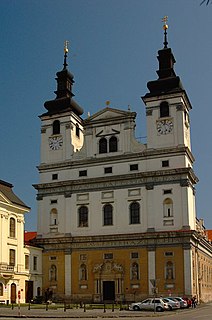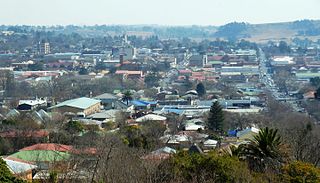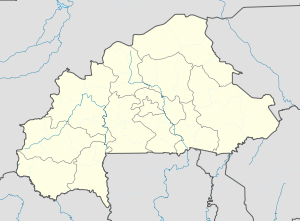
A village is a clustered human settlement or community, larger than a hamlet but smaller than a town, with a population ranging from a few hundred to a few thousand. Though villages are often located in rural areas, the term urban village is also applied to certain urban neighborhoods. Villages are normally permanent, with fixed dwellings; however, transient villages can occur. Further, the dwellings of a village are fairly close to one another, not scattered broadly over the landscape, as a dispersed settlement.

Framingham is a city in the Commonwealth of Massachusetts in the United States. Incorporated in 1700, it is within Middlesex County and the MetroWest subregion of the Greater Boston metropolitan area. The city proper covers 25 square miles (65 km2) with a population of 68,318 in 2010, making it the 14th most populous municipality in Massachusetts. As of 2017 the estimated population was 72,032. Residents voted in favor of adopting a charter to transition from a representative town meeting system to a mayor–council government in April 2017, and the municipality transitioned to city status on January 1, 2018.

Trnava is a city in western Slovakia, 47 km (29 mi) to the north-east of Bratislava, on the Trnávka river. It is the capital of a kraj and of an okres. It is the seat of a Roman Catholic archbishopric. The city has a historic center. Because of the many churches within its city walls, Trnava has often been called "parva Roma", i.e. "Little Rome", or more recently, the "Slovak Rome".
The National League, currently named the Vanarama National League for sponsorship reasons, is the highest level of the National League System and fifth-highest of the overall English football league system. While all of the clubs in the top four divisions of English football are professional, the National League has a mixture of professional and semi-professional clubs. The National League is the lowest division in the English football pyramid organised on a nationwide basis. Formerly the Conference National, the league was renamed the National League from the 2015–16 season.

South Korea is made up of 17 first-tier administrative divisions: 6 metropolitan cities, 1 special city, 1 special autonomous city, and 9 provinces, including one special autonomous province. These are further subdivided into a variety of smaller entities, including cities, counties, districts, towns, townships, neighborhoods and villages.

Butterworth, within the North Seberang Perai District, is the largest town in Seberang Perai, the mainland half of the Malaysian state of Penang. It lies approximately 3 km (1.9 mi) east of George Town, the capital city of Penang, across the Penang Strait. As of 2010, Butterworth contained a total of 71,643 residents.

When referring to political divisions of China, town is the standard English translation of the Chinese 镇. The Constitution of the People’s Republic of China currently classifies towns as third-level administrative units, along with townships and ethnic minority townships. A township is typically smaller in population and more remote than a town (zhèn).

Bethlehem is a large town in the eastern Free State province of South Africa that is situated on the Liebenbergs river along a fertile valley just north of the Rooiberg Mountains on the N5 road.It is the fastest growing town in the Free state province, with its target of being the Fourth largest city after Kroonstad in balance.

Port Elizabeth or The Bay is one of the major cities in South Africa; it is situated in the Eastern Cape Province, 770 km (478 mi) east of Cape Town. The city, often shortened to PE and nicknamed "The Windy City", stretches for 16 km along Algoa Bay, and is one of the major seaports in South Africa. Port Elizabeth is the southernmost large city on the African continent, just farther south than Cape Town. Port Elizabeth was founded as a town in 1820 to house British settlers as a way of strengthening the border region between the Cape Colony and the Xhosa. It now forms part of the Nelson Mandela Bay Metropolitan Municipality, which has a population of over 1.3 million.

Welenga is the debut album by Wes Madiko and Michel Sanchez, released in 1996 through Saint George Records. The album reached the top 10 in Portugal.

Bukit Mertajam is a town and the administrative centre of the Central Seberang Perai District in Seberang Perai, Penang, Malaysia. It also serves as the seat of the local government of Seberang Perai - the Seberang Perai Municipal Council. As of 2010, Bukit Mertajam contained a total of 13,097 residents.

Manyikeni is a Mozambican archaeological site, around 52 km west of the coastal city of Vilanculos. The archaeological site dates from the twelfth to seventeenth century. It is believed to be part of the Great Zimbabwe tradition of architecture, distinguished by mortarless stone walls, and part of the famous Mwenu Mutapa’s Kingdom. The central stone enclosure complex is built in this tradition, and the find of a Zimbabwe-style iron gong at the site also suggests cultural ties.

Burkinabé cuisine, the cuisine of Burkina Faso, is similar to the cuisines in many parts of West Africa, and is based on staple foods of sorghum, millet, rice, fonio, maize, peanuts, potatoes, beans, yams and okra. Rice, maize and millet are the most commonly eaten grains. Grilled meat is common, particularly mutton, goat, beef and fish. Vegetables include, besides yams and potatoes, okra, tomatoes, zucchini, carrots, leeks, onions, beets, pumpkins, cucumbers, cabbage, sorrel and spinach. Although imported products are becoming more common in urban areas, meals in more rural areas typically consist of tô, a sauce of corchorus or baobab leaves, as well as the calyx from Bombax costatum, dried fish, and spices such as chili and soumbala.
Mahibere Degue is a historical town in Tigray regional state, Ethiopia. It is located 12.5 km south of the city of Axum, the seat of the former Kingdom of Axum. The town is known for its church, Enda Tsadkan, which is a popular tourist attraction.
Walajabad taluk is a taluk in the Kanchipuram district of Tamil Nadu, India. At the 2011 Census of India, the taluk covered an area of 339.03 square kilometres (130.90 sq mi) with a population of 125,868. The headquarters of the taluk is the town of Walajabad.

Flint Town is an eight episode American documentary television series that was released on Netflix on March 2, 2018. The documentary focuses on the thoughts and conflicted emotions of the men and women serving to protect urban areas of Flint, Michigan struggling with poverty, crime, financially strapped public services and the Flint water crisis. The series covers a period from November 2015 to early 2017, the same time frame as the 2016 presidential election. The department captured on-screen is down from 300 cops to 98 for 100,000 people, the lowest number out of comparably sized cities. Over the course of the episodes, the police faced a crucial millage vote and a city government wrangling over funding.
















